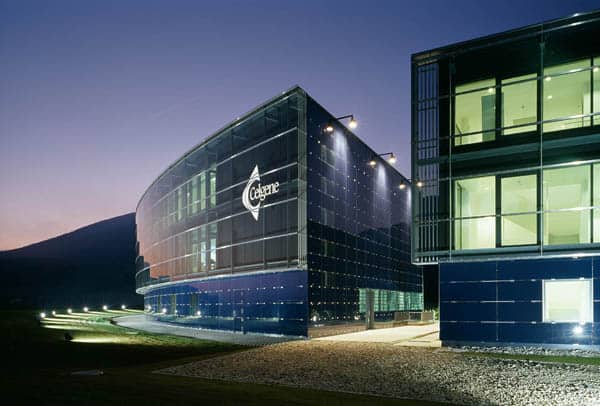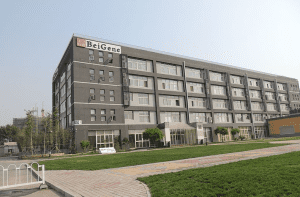
Celgene plays catch up with $1.4 billion immunotherapy deal
pharmafile | July 7, 2017 | News story | Medical Communications, Sales and Marketing | BeiGene, Celgene, immunotherapy, pd-1
Those commentating on Celgene’s latest deal seem to be equally divided between two camps: it is too much money, too late, and those that think it might be a gamble that can pay off. The deal itself is a licensing agreement with BeiGene for its PD-1 immunotherapy, BGB-A317; it is structured so that BeiGene receives $263 million upfront, a further $150 million equity stake and close to $1 billion locked into milestone agreements.
This is a lot of money when BMS and MSD have already forged ahead in sales with their respective immunotherapy treatments, Opdivo and Keytruda. These two companies will not even be Celgene’s only competitors, with Roche having had its treatment on the market for over a year, Merck KGaA and Pfizer gained approvals for theirs, and AstraZeneca recently also its first approval.
It has very quickly become a crowded market and some analysts are sceptical that this new therapy can make much of dent in the market, given that it is yet to be approved across any indications. The licensing deal will also not see Celgene gain access to markets that are not currently saturated with the treatments, as its part of the licensing deal does not include the Asian market, only the US, European markets and everything outside of Asia.
In a further bonus to BeiGene, it will receive exclusive rights to commercialise Celgene’s Revlimid, Abrazana and Vidaza in the Asian market.
The deal seems strongly weighted in favour of BeiGene but clearly Celgene has seen something in the drug that appeals to it. One possible potential use could be the next stage of development of the PD-1/PD-L1 therapies – using them in combination with drugs. Celgene’s drugs recently hit the news alongside MSD’s recent trial halt due to a disparity in participant deaths in the combination arms.
There is a possibility that Celgene has picked up on the potential for its treatments in these early combinations trials that has strengthened its determination to pick up its own PD-1 drug.
“The acquisition of BGB-A317 significantly accelerates and expands our opportunity to develop and deliver novel T-cell checkpoint inhibitor-based therapies in solid tumour cancers to patients worldwide and adds to our ongoing PD-L1 FUSION program in haematological malignancies,” said Mark J. Alles, Chief Executive Officer of Celgene. “China is an important market for Celgene, and our collaboration with BeiGene positions us exceptionally well to optimize research, manufacturing, and the long-term commercial potential of our portfolio in China.”
Time will tell if the deal has been a suitable strategy but it has certainly caught the attention of the industry. The transaction is expected to complete in the third quarter of 2017.
Ben Hargreaves
Related Content

BeiGene’s Brukinsa gains FDA accelerated approval for follicular lymphoma treatment
BeiGene has announced that the US Food and Drug Administration (FDA) has granted accelerated approval …

NICE recommends Celgene’s REVLIMID for multiple myeloma
NICE has issued a Final Appraisal Document (FAD) recommending Celgene’s REVLIMID (lenalidomide) as maintenance treatment …

BeiGene’s tislelizumab gets China approval for non-small cell lung cancer
BeiGene Ltd has announced that its anti-PD-1 antibody tislelizumab has received approval from the China …








